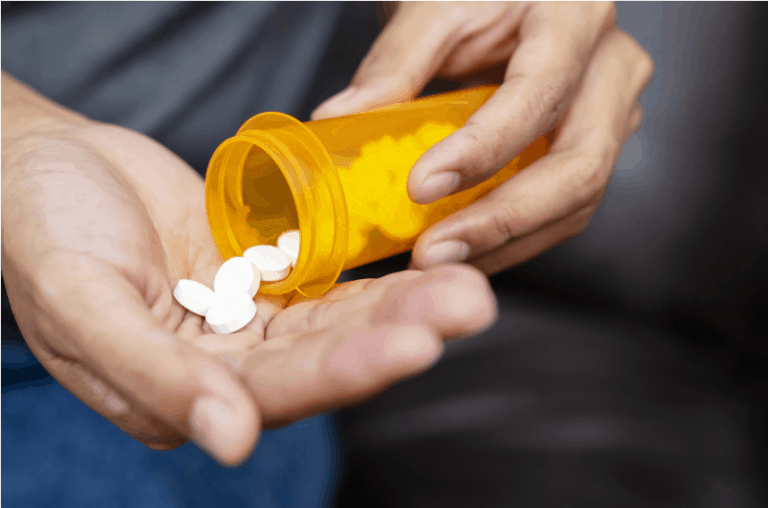In a positive sense, to enable someone or be an enabler can mean to empower them or encourage them to develop and grow. However, in the sense where you are enabling addiction, to enable someone takes a more negative tone. Is there someone in your life who you can see has a problem with drugs or alcohol? Perhaps it is difficult for you to even admit to yourself that their addiction is even a real issue.
Denial is often the first sign that an enabling or enabler behavior is occurring. We at Knoxville Recovery Center understand the patterns of addiction and how difficult it can be to make the right decisions at the right time. When you are ready to make that choice with your loved ones, we are here for them.
What Is an Enabler?
If you are enabling or are being an enabler, this refers to a pattern of behavior where you are knowingly or unknowingly providing support to someone who is participating in self-destructive actions.
Enabling is often a double-edged sword, as the person doing it feels like they are genuinely helping the person out. However, the real truth is that underneath their seemingly kind gestures, they are supporting problematic behaviors, making it easier for that particular behavior to continue.
When you enable someone else, this doesn’t necessarily mean you support their addiction, for example. Instead, you may believe that if you don’t help your loved one, what they will experience instead will be much worse.
However, it is critical to understand that enabling is not really helping the individual. What it is doing is actually stopping them from experiencing the full consequences of their actions.
Characteristics of Enabler Behavior
How exactly do you know if you have become an enabler to someone that you care about? Here are several different identifying factors.
1. Ignoring or tolerating the problem: Perhaps your loved one has a problem with addiction and you are afraid of what will happen if you confront them with your concerns. Part of you may believe if you ignore the situation, it just might go away.
2. Giving them money: There is nothing wrong with helping out a family member from time to time who needs it, if your finances allow. However, if this person has a problem with addiction, they could end up spending it on drugs or alcohol. If they are asking for money to pay their rent every month, they are becoming dependent on you instead of learning how to manage their own money.
3. Making Excuses for them: Perhaps your loved one has made a mistake and there are undesirable consequences waiting for them as a result. Are you tempted to make excuses for their behavior in hopes of getting them out of hot water? After all, you don’t want for your loved one to be seen in a harsh or negative light.
4. Taking care of their responsibilities: You just might be an enabler if you find that you are doing more work around the house than you should be. Particularly if you are taking care of all of the household chores, caring for their kids, or getting important tasks done that they have left undone.
5. Denying that a problem exists: Perhaps your loved one has told you that they have only used drugs a few times but they aren’t addicted. You might tell yourself that there isn’t a problem just to make yourself feel better. You go ahead and give them reassurance that you don’t think that they have a problem.
6. Acting like hurtful behavior is no big deal: When someone has a problem with addiction, they often do mean or hurtful things. They might talk down to you, insult you, or even do you physical harm. If you are enabling them, you might tell yourself that it isn’t so bad, and that they only did this thing to you because of their addiction.
7. Using drugs or alcohol with them: Sometimes when you are enabling, you feel the best way to care for them is to keep them within arm’s reach. For example, if you drink with them, you can try and limit how much they are drinking, and make sure they aren’t going to try and drive home drunk.
How to Stop Being an Enabler
Have you figured out that you may be enabling or becoming an enabler to someone you love? Here is how to handle it from now on. Instead of just ignoring the problem or pretending like it is no big deal, let the individual know that you are aware they are abusing drugs or alcohol. You can still show compassion while letting them know that what they are doing is not alright.
It is important to remember that it is okay to say no when it is necessary. As someone who is used to enabling addiction, this may be particularly difficult for you. Your loved one may become surprised at you or angry. However, saying no sometimes is absolutely critical for the recovery of someone you care about.
If you are willing to confront your loved one with the truth, this lets them know that you aren’t encouraging their behavior, but that you are there for them if they want to implement real change in their life.
In order for them to get over their addiction, the best route is professional treatment. This is something you should bring to their attention, and encourage every chance you get. Tell them that you would be happy to go with them to begin their therapy and treatment.
Stop Enabling Addiction Today
We at Knoxville Recovery Center would never pass judgment on you for trying to show compassion to someone that you care for. However, when you are enabling addiction, no one wins. Your loved one needs help from a caring team of qualified professionals that are trained to help them overcome their addiction. It all starts with a simple phone call. Please feel free to contact us or call us and we will answer any questions you may have regarding our program.










